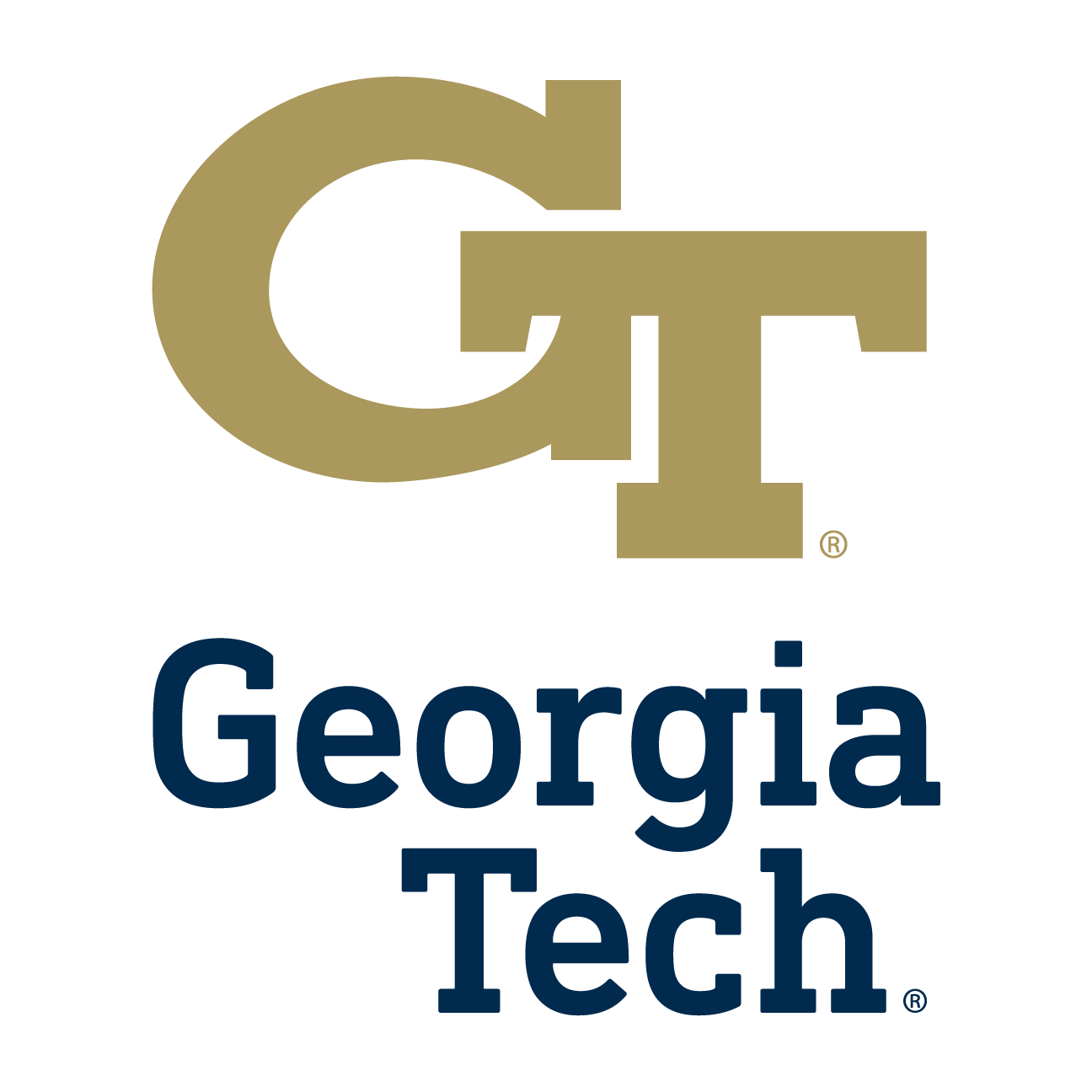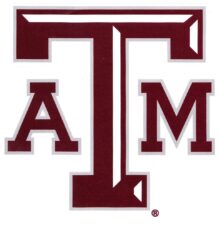41 Best Colleges for Electrical Engineering – 2024
April 15, 2024

The impact of electrical engineers can be felt everywhere around us. Robotics, video games, cell phones, power systems that light up the modern world, and the computers on which we rely for just about every facet of our lives are just some of the contributions made by brilliant individuals in this constantly expanding field. With high starting salaries, landing desirable jobs in electrical engineering is highly competitive. The universities that crack our list of the Best Colleges for Electrical Engineering are known for their top-notch facilities and instructors who routinely produce the next generation of innovators.
Methodology
Click here to read our methodology for the Best Colleges for Electrical Engineering.
Salary Information
Want to know how much money graduates of the best electrical engineering colleges make when they begin their careers? For each college listed (and hundreds of additional schools), you can view the starting salaries for electrical engineering majors.
Best Colleges for Electrical Engineering
Here’s a quick preview of the first electrical engineering institutions that made our list. Detailed profiles and stats can be found when you scroll below.
1) University of California, Berkeley
2) Georgia Institute of Technology
3) Massachusetts Institute of Technology
4) Stanford University
5) University of Illinois Urbana-Champaign
6) California Institute of Technology
7) Carnegie Mellon University
8) Columbia University
9) Purdue University
10) University of Michigan
All of the schools profiled below have stellar reputations in the field of electrical engineering and commit substantial resources to undergraduate education. For each of the best electrical engineering colleges, College Transitions will provide you with—when available—the university’s:
We will also include a longer write-up of each college’s:
- Academic Highlights – Includes facts like student-to-faculty ratio, average class size, number of majors offered, and most popular majors.
- Professional Outcomes – Includes info on the rate of positive outcomes, companies employing alumni, and graduate school acceptances.

University of California, Berkeley
- Berkeley, CA
Academic Highlights: More than 150 undergraduate majors and minors are available across six schools: the College of Letters and Science, the College of Chemistry, the College of Engineering, the College of Environmental Design, the College of Natural Resources, and the Haas School of Business. Many departments have top international reputations including computer science, engineering, chemistry, English, psychology, and economics. 22% of sections contain nine or fewer students, and over 55% of students assist faculty with a research project or complete a research methods course.
Professional Outcomes: Upon graduating, 49% of Cal’s Class of 2022 had already secured employment, and 20% were headed to graduate school. Business is the most popular sector, attracting 62% of employed grads; next up are industrial (17%), education (8%), and nonprofit work (7%). The median starting salary was $86,459 across all majors. Thousands of alumni can be found in the offices of Google, Apple, and Meta, and 500+ Golden Bears are currently employed by Oracle, Amazon, and Microsoft. The school is the number one all-time producer of Peace Corps volunteers.
- Enrollment: 32,831 (undergraduate); 12,914 (graduate)
- Cost of Attendance: $48,574 (in-state); $82,774 (out-of-state)
- Median SAT: Test Blind
- Median ACT: Test Blind
- Acceptance Rate: 11%
- Retention Rate: 96%
- Graduation Rate: 94%

Georgia Institute of Technology
- Atlanta, GA
Academic Highlights: Georgia Tech’s engineering and computer science programs are at the top of any “best programs” list. Being a large research university, the student-to-faculty ratio is a less-than-ideal 22:1, leading to some larger undergraduate class sections. In fact, 49% of courses had enrollments of more than thirty students in 2022-23. On the other end of the spectrum, 8% of sections had single-digit enrollments. In terms of total number of degrees conferred, the most popular areas of study are engineering (51%), computer science (21%), and business (9%).
Professional Outcomes: More than three-quarters of recent grads had already procured employment by the time they were handed their diplomas. You will find graduates at every major technology company in the world. The median salary reported by that group was $80,000. Many remain on campus to earn advanced engineering degrees through Georgia Tech, but the school’s reputation is such that gaining admission into other top programs including MIT, Carnegie Mellon, Berkeley, Stanford, and Caltech.
- Enrollment: 18,416
- Cost of Attendance: $29,950 (In-State); $52,120 (Out-of-State)
- Median SAT: 1470
- Median ACT: 33
- Acceptance Rate: 17%
- Retention Rate: 98%
- Graduation Rate: 93%

Massachusetts Institute of Technology
- Cambridge, MA
Academic Highlights: Undergraduates pursue one of 57 majors and 59 minors at this world-class research institution that continues to be one of the world’s most magnetic destinations for math and science geniuses. The student-to-faculty ratio is an astonishing 3-to-1, and over two-fifths of all class sections have single-digit enrollments, and 70% of courses contain fewer than twenty students. The highest numbers of degrees conferred in 2022 were in the following majors: engineering (31%), computer science and engineering (28%), mathematics (10%), and the physical sciences (7%).
Professional Outcomes: The Class of 2023 saw 29% of its members enter the world of employment and 43% continue on their educational paths. The top employers included Accenture, Amazon, Microsoft, Goldman Sachs, Google, General Motors, the US Navy, Apple, Bain & Company, and McKinsey. The mean starting salary for an MIT bachelor’s degree holder was $95,000. The most frequently attended graduate schools are a who’s who of elite institutions including MIT itself, Stanford, Caltech, Harvard, and the University of Oxford.
- Enrollment: 4,657
- Cost of Attendance: $82,730
- Median SAT: 1550
- Median ACT: 35
- Acceptance Rate: 4%
- Retention Rate: 99%
- Graduation Rate: 95%

Stanford University
- Palo Alto, CA
Academic Highlights: Stanford has three undergraduate schools: the School of Humanities & Sciences, the School of Engineering, and the School of Earth, Energy, and Environmental Sciences. 69% of classes have fewer than twenty students, and 34% have a single-digit enrollment. Programs in engineering, computer science, physics, mathematics, international relations, and economics are arguably the best anywhere. In terms of sheer volume, the greatest number of degrees are conferred in the social sciences (17%), computer science (16%), engineering (15%), and interdisciplinary studies (13%).
Professional Outcomes: Stanford grads entering the working world flock to three major industries in equal distribution: business/finance/consulting/retail (19%); computer, IT (19%); and public policy and service, international affairs (19%). Among the companies employing the largest number of recent grads are Accenture, Apple, Bain, Cisco, Meta, Goldman Sachs, Google, McKinsey, Microsoft, and SpaceX. Other companies that employ hundreds of Cardinal alums include LinkedIn, Salesforce, and Airbnb. Starting salaries for Stanford grads are among the highest in the country.
- Enrollment: 8,049 (undergraduate); 10,236 (graduate)
- Cost of Attendance: $87,833
- Median SAT: 1540
- Median ACT: 35
- Acceptance Rate: 4%
- Retention Rate: 98%
- Graduation Rate: 95%

University of Illinois at Urbana-Champaign
- Champaign-Urbana, IL
Academic Highlights: Eight of UIUC’s fifteen schools cater to undergraduate students. There are 150 academic programs offered, including those at the acclaimed Grainger College of Engineering and Gies College of Business. In sheer volume of degrees conferred, engineering and business/marketing are tied at 19%, followed by the social sciences (9%) and psychology (6%). 39% of sections are capped at 19 students. 29% of undergraduates work with a faculty member on a research project; another 22% have some type of fieldwork, practicum, or clinical experience.
Professional Outcomes: 95% of the members of the Class of 2022 landed at their next destination within six months of graduation, with 38% matriculating directly into an advanced degree program. 57% were employed full-time; the most popular sectors were finance, consulting, healthcare, electronics, and education. Corporations landing the most recent Illini grads were KPMG, Deloitte, Epic Systems, EY, PwC, and Amazon. The average salary across all Class of 2022 majors was an extremely solid $75,000.
- Enrollment: 35,120 (undergraduate); 21,796 (graduate)
- Cost of Attendance: $35,926-$41,190 (in-state); $55,386-$63,290 (out-of-state)
- Median SAT: 1440
- Median ACT: 32
- Acceptance Rate: 79%
- Retention Rate: 93%
- Graduation Rate: 85%

California Institute of Technology
- Pasadena, CA
Academic Highlights: Across all divisions, there are 28 distinct majors. Possessing an absurdly favorable 3:1 student-to-faculty ratio, plenty of individualized attention is up for grabs. Class sizes are not quite as tiny as the student-to-faculty ratio might suggest, but 70% of courses enroll fewer than twenty students, and 28% enroll fewer than ten. Computer science is the most popular major, accounting for 38% of all degrees conferred. Engineering (30%), the physical sciences (20%), and mathematics (6%) also have strong representation.
Professional Outcomes: Caltech is a rare school that sees six-figure average starting salaries for its graduates; in 2022, the median figure was $120,000. Forty-three percent of recent grads went directly into the workforce and found homes at tech giants such as Google, Intel, Microsoft, Apple, and Meta. A healthy 46% of those receiving their diplomas in 2022 continued directly on the higher education path, immediately entering graduate school. Ninety-seven percent of these students were admitted to one of their top-choice schools.
- Enrollment: 982
- Cost of Attendance: $86,886
- Median SAT: Test Blind
- Median ACT: Test Blind
- Acceptance Rate: 3%
- Retention Rate: 98%
- Graduation Rate: 94%

Carnegie Mellon University
- Pittsburgh, PA
Academic Highlights: There are a combined 80+ undergraduate majors and 90 minors available across the six schools. Impressively, particularly for a school with more graduate students than undergrads, CMU boasts a 6:1 student-to-faculty ratio and small class sizes, with 36% containing single digits. In a given school year, 800+ undergraduates conduct research through the University Research Office. The most commonly conferred degrees are in engineering (21%), computer science (16%), mathematics (12%), business (10%), and visual and performing arts (9%).
Professional Outcomes: By the end of the calendar year in which they received their diplomas, 66% of 2022 grads were employed, and 28% were continuing to graduate school. The companies that have routinely scooped up CMU grads include Google, Meta, Microsoft, Apple, Accenture, McKinsey, and Deloitte. With an average starting salary of $105,194, CMU grads outpace the average starting salary for a college grad nationally. Of those pursuing graduate education, around 20% typically enroll immediately in PhD programs.
- Enrollment: 7,509
- Cost of Attendance: $84,412
- Median SAT: 1540
- Median ACT: 35
- Acceptance Rate: 11%
- Retention Rate: 97%
- Graduation Rate: 92%

Columbia University
- New York, NY
Academic Highlights: Columbia offers 100+ unique areas of undergraduate study as well as a number of pre-professional and accelerated graduate programs. Class sizes at Columbia are reasonably small and the student-to-faculty ratio is favorable; however, in 2022, it was revealed that the university had been submitting faulty data in this area. It is presently believed that 58% of undergraduate courses enroll 19 or fewer students. The greatest number of degrees are conferred in the social sciences (22%), computer science (15%), engineering (14%), and biology (7%).
Professional Outcomes: Examining the most recent graduates from Columbia College and the Fu Foundation School of Engineering & Applied Science, 73% had found employment within six months, and 20% had entered graduate school. The median starting salary for graduates of Columbia College/Columbia Engineering is above $80,000. Many graduates get hired by the likes of Amazon, Goldman Sachs, Morgan Stanley, Google, Citi, McKinsey, and Microsoft.
- Enrollment: 8,832
- Cost of Attendance: $89,587
- Median SAT: 1540
- Median ACT: 35
- Acceptance Rate: 4%
- Retention Rate: 98%
- Graduation Rate: 95%

Purdue University — West Lafayette
- West Lafayette, IN
Academic Highlights: Purdue offers over 200 majors at ten discipline-specific colleges, and 38% of course sections have an enrollment of 19 or fewer. Engineering and engineering technologies majors earn 34% of the degrees conferred by the university; the College of Engineering cracks the top ten on almost every list of best engineering schools. The Krannert School of Management is also well-regarded by employers; 11% of degrees conferred are in business. Other popular majors include computer science (10%) and agriculture (5%)—both are incredibly strong.
Professional Outcomes: Shortly after receiving their diplomas, 70% of 2022 grads headed to the world of employment while 24% headed to graduate/professional school. The top industries entered by grads in recent years are (1) health care, pharmaceuticals, and medical devices; (2) finance, insurance, and consulting; (3) manufacturing and machinery; (4) airline, aviation, and aerospace. Companies employing the greatest number of recent alumni were Amazon, Deloitte, PepsiCo, Labcorp, Lockheed Martin, and Microsoft. The average starting salary was $68k across all degree programs.
- Enrollment: 37,949 (undergraduate); 12,935 (graduate)
- Cost of Attendance: $22,812 (in-state); $41,614 (out-of-state)
- Median SAT: 1330
- Median ACT: 31
- Acceptance Rate: 53%
- Retention Rate: 91%
- Graduation Rate: 84%

University of Michigan
- Ann Arbor, MI
Academic Highlights: There are 280+ undergraduate degree programs across fourteen schools and colleges, and the College of Literature, Science, and the Arts (LSA) enrolls the majority of students. The Ross School of Business offers highly rated programs in entrepreneurship, management, accounting, and finance. The College of Engineering is also one of the best in the country. By degrees conferred, engineering (15%), computer science (14%), and the social sciences (11%) are most popular. A solid 56% of classes have fewer than 20 students.
Professional Outcomes: Within three months of graduating, 89% of LSA grads are employed full-time or in graduate school, with healthcare, education, law, banking, research, nonprofit work, and consulting being the most popular sectors. Within three months, 99% of Ross grads are employed with a median salary of $90k. Top employers include Goldman Sachs, Deutsche Bank, EY, Morgan Stanley, PwC, Deloitte, and Amazon. Within six months, 96% of engineering grads are employed (average salary of $84k) or in grad school. General Motors, Ford, Google, Microsoft, Apple, and Meta employ the greatest number of alumni.
- Enrollment: 32,695 (undergraduate); 18,530 (graduate)
- Cost of Attendance: $35,450 (in-state); $76,294 (out-of-state)
- Median SAT: 1470
- Median ACT: 33
- Acceptance Rate: 18%
- Retention Rate: 97%
- Graduation Rate: 93%

Cornell University
- Ithaca, NY
Academic Highlights: A diverse array of academic programs includes 80 majors and 120 minors spread across the university’s seven schools/colleges. Classes are a bit larger at Cornell than at many other elite institutions. Still, 55% of sections have fewer than 20 students. Most degrees conferred in 2022 were in computer science (17%), engineering (13%), business (13%), and biology (13%). The SC Johnson College of Business houses two undergraduate schools, both of which have phenomenal reputations.
Professional Outcomes: Breaking down the graduates of the College of Arts and Sciences, the largest school at Cornell, 68% entered the workforce, 28% entered graduate school, 1% pursued other endeavors such as travel or volunteer work, and the remaining 3% were still seeking employment six months after receiving their diplomas. The top sectors attracting campus-wide graduateswere financial services (18%), technology (17%), consulting (15%), and education (10%). Of the students from A&S going on to graduate school, 15% were pursuing JDs, 5% MDs, and 22% PhDs.
- Enrollment: 15,735
- Cost of Attendance: $88,150
- Median SAT: 1520
- Median ACT: 34
- Acceptance Rate: 7%
- Retention Rate: 97%
- Graduation Rate: 95%

The University of Texas at Austin
- Austin, TX
Academic Highlights: UT Austin offers over 150 majors, including those at the Cockrell School of Engineering, one of the most heralded undergraduate engineering schools around, and The McCombs School of Business, which dominates in the specialty areas of accounting and marketing. The computer science department is also top-ranked. In terms of degrees conferred, engineering is tied with biology (12%) followed by communication (11%), business (11%), and the social sciences (8%). The elite Plan II Honors Program is one of the best in the country.
Professional Outcomes: Within the College of Liberal Arts, six months after graduating, 68% of Longhorns are employed and 24% have entered graduate school. The for-profit sector attracts 65% of those employed while 19% enter public sector employment and 16% pursue jobs at a nonprofit. Major corporations that employ more than 500 UT Austin grads include Google, Meta, Oracle, Microsoft, IBM, and Apple. Engineering majors took home a median income of $79k and business majors took home $70k.
- Enrollment: 41,309 (undergraduate); 11,075 (graduate)
- Cost of Attendance: $30,752-$34,174 (in-state); $61,180-$69,310 (out-of-state)
- Median SAT: 1430
- Median ACT: 32
- Acceptance Rate: 31%
- Retention Rate: 95%
- Graduation Rate: 88%

University of California, Los Angeles
- Los Angeles, CA
Academic Highlights: UCLA offers 125 majors in 100+ academic departments, and more than 60 majors require a capstone experience that results in the creation of a tangible product under the mentorship of faculty members. The most commonly conferred degrees are in the social sciences (25%), biology (16%), psychology (11%), mathematics (8%), and engineering (7%). Departmental rankings are high across the board, especially in computer science, engineering, film, fine and performing arts, mathematics, and political science.
Professional Outcomes: UCLA grads flow most heavily into the research, finance, computer science, and engineering sectors. High numbers of recent grads can be found at Disney, Google, EY, Teach for America, Amazon, and Oracle. Hundreds also can be found at Bloomberg, Deloitte, Mattel, Oracle, and SpaceX. The average starting salary exceeds $55,000. 16% of recent grads enrolled directly in a graduate/professional school, with other CA-based institutions like Stanford, Pepperdine, USC, Berkeley, and Loyola Marymount being the most popular.
- Enrollment: 33,040 (undergraduate); 15,010 (graduate)
- Cost of Attendance: $38,517 (in-state); $71,091 (out-of-state)
- Median SAT: Test Blind
- Median ACT: Test Blind
- Acceptance Rate: 9%
- Retention Rate: 97%
- Graduation Rate: 93%

University of California, San Diego
- San Diego, CA
Academic Highlights: There are 140+ undergraduate majors offered at UCSD, and all students join one of eight undergraduate colleges meant to forge flourishing communities within the larger university. Biology has the highest representation of all majors (19%) followed by engineering (12%), the social sciences (11%), and computer science (9%). UCSD’s computer science and engineering programs have stellar reputations in the corporate and tech communities, and programs in biology, economics, and political science are among the best anywhere.
Professional Outcomes: Employers of recent graduates included the Walt Disney Company, Tesla, NBC Universal, PwC, Northrop Grumman, and EY. More than 1,000 current Google employees are UC San Diego alumni, and Qualcomm, Amazon, and Apple all employ 500+ each. The median early career salary is $65,000 across all majors, placing the university in the top 10 public universities in the country. UCSD also fares well in measures of its return-on-investment potential.
- Enrollment: 33,096 (undergraduate); 8,386 (graduate)
- Cost of Attendance: $31,830 (in-state); $64,404 (out-of-state)
- Median SAT: Test Blind
- Median ACT: Test Blind
- Acceptance Rate: 25%
- Retention Rate: 93%
- Graduation Rate: 88%

Princeton University
- Princeton, NJ
Academic Highlights: 39 majors are available at Princeton. Just under three-quarters of class sections have an enrollment of 19 or fewer students, and 31% have fewer than ten students. Princeton is known for its commitment to undergraduate teaching, and students consistently rate professors as accessible and helpful. The Engineering Department is widely recognized as one of the country’s best, as is the School of Public and International Affairs.
Professional Highlights: Over 95% of a typical Tiger class finds their next destination within six months of graduating. Large numbers of recent grads flock to the fields of business and engineering, health/science, & tech. Companies presently employing hundreds of Tiger alumni include Google, Goldman Sachs, Microsoft, McKinsey & Company, Morgan Stanley, IBM, and Meta. The average salary ranges from $40k (education, health care, or social services) to $100k (computer/mathematical positions). Between 15-20% of graduating Tigers head directly to graduate/professional school.
- Enrollment: 5,604 (undergraduate); 3,238 (graduate)
- Cost of Attendance: $86,700
- Median SAT: 1540
- Median ACT: 35
- Acceptance Rate: 6%
- Retention Rate: 97%
- Graduation Rate: 98%

University of Washington – Seattle
- Seattle, WA
Academic Highlights: 180+ undergraduate majors are offered across thirteen colleges/schools. Personal connections with professors abound as 55% of grads complete a faculty-mentored research project. The College of Engineering, which includes the College of Computer Science & Engineering, is one of the best in the nation; UW also boasts strong programs in everything from business to social work to environmental science. The most popular degrees are the social sciences (13%), biology (12%), computer science (11%), and business (8%).
Professional Outcomes: Within months of graduation, 73% of Class of 2022 grads were employed and 17% were continuing their education. The most popular employers of the Class of 2022 included Google, Amazon, Microsoft, Boeing, and KPMG. Across all living alumni, 6,000+ work for Microsoft, and 4000+ work for each of Boeing and Amazon. Of those headed to graduate/professional school, just over half remain in state, mostly at UW itself. Large numbers of 2022 grads also headed to Columbia, Johns Hopkins, and USC.
- Enrollment: 36,872 (undergraduate); 16,211 (graduate)
- Cost of Attendance: $34,554 (in-state); $63,906 (out-of-state)
- Median SAT: 1420
- Median ACT: 32
- Acceptance Rate: 48%
- Retention Rate: 94%
- Graduation Rate: 84%

University of Pennsylvania
- Philadelphia, PA
Academic Highlights: 90 distinct degrees are available across four schools: the College of Arts & Sciences, the College of Applied Science and Engineering, the College of Nursing, and the world-renowned Wharton School. The greatest number of students pursue degrees in business (19%), social sciences (14%), biology (11%), health sciences (9%), engineering (9%), and computer science (9%). The university boasts an exceptional 26% of courses with an enrollment under ten and 59% with an enrollment under twenty as well as multiple ways for undergrads to conduct research.
Professional Outcomes: 75% of Class of 2022 grads were employed within six months of graduating, and 18% were in graduate school. Finance attracted the highest percentage of grads (30%) followed by consulting (20%), technology (15%), and healthcare (10%). Employers hiring the greatest number of 2022 grads included JPMorgan, Boston Consulting Group, McKinsey, Bain & Company, Meta, and Goldman Sachs. The median starting salary for all graduates is $80,000. For those continuing their educational journeys, the most popular move is to remain at Penn, followed by Columbia and Harvard.
- Enrollment: 9,760 (undergraduate); 13,614 (graduate)
- Cost of Attendance: $89,028
- Median SAT: 1540
- Median ACT: 35
- Acceptance Rate: 7%
- Retention Rate: 98%
- Graduation Rate: 96%

The Ohio State University — Columbus
- Columbus, OH
Academic Highlights: There are 200+ undergraduate majors and 18 schools and colleges housed within OSU. Business sees the greatest percentage of degrees conferred at 18% followed by engineering (15%), health professions (10%), and the social sciences (9%). It makes sense that so many flock to the business and engineering schools as they are among the highest-rated undergraduate programs in their respective disciplines. 40% of sections enroll fewer than 20 students, and approximately 20% of students gain research experience.
Professional Outcomes: Upon receiving their diplomas, 56% of Class of 2022 graduates were entering the world of employment while 17% were already accepted into graduate or professional school. Hordes of Buckeyes can be found at many of the nation’s leading companies. More than 2,000 alumni work for JPMorgan Chase, more than 1,000 are employed by Amazon, and more than 600 work for Google and Microsoft. Of the grads who directly matriculate into graduate or professional school, many continue in one of OSU’s own programs.
- Enrollment: 45,728 (undergraduate); 14,318 (graduate)
- Cost of Attendance: $27,241 (in-state); $52,747 (out-of-state)
- Median SAT: 1340-1450
- Median ACT: 29-32
- Acceptance Rate: 53%
- Retention Rate: 94%
- Graduation Rate: 88%

University of Maryland, College Park
- College Park, MD
Academic Highlights: Undergraduates can select from 100+ majors across twelve colleges. 18% of degrees are conferred in computer science, followed by the social sciences (13%), with criminology, government and politics, and economics being the most popular majors. Engineering (13%), business (11%), and biology (8%) are next in line. The School of Business, the School of Engineering, and the College of Journalism are all top-ranked, as are programs in computer science and criminology. 46% of sections enroll fewer than twenty students.
Professional Outcomes: Within six months of graduating, 96% of Class of 2022 grads had positive outcomes. 67% found employment; the companies/organizations that hired the greatest number of grads included Northrop Grumman, Deloitte, Amazon, and EY. Meta, Apple, and Google employ more than 200 alumni each. The mid-50% salary range for 2022 grads was $55k-$83k. 21% of the Class of 2022 headed directly to graduate and professional school; 11% entered doctoral programs, 5% entered medical school, and 5% entered law school.
- Enrollment: 30,353 (undergraduate); 10,439 (graduate)
- Cost of Attendance: $31,540 (in-state); $60,918 (out-of-state)
- Median SAT: 1440
- Median ACT: 33
- Acceptance Rate: 84%
- Retention Rate: 95%
- Graduation Rate: 89%

Duke University
- Durham, NC
Academic Highlights: The academic offerings at Duke include 53 majors, 52 minors, and 23 interdisciplinary certificates. Class sizes are on the small side—71% are nineteen or fewer, and almost one-quarter are less than ten. A stellar 5:1 student-to-faculty ratio helps keep classes so reasonable even while catering to five figures worth of graduate students. Computer Science is the most popular area of concentration (11%), followed by economics (10%), public policy (9%), biology (8%), and computer engineering (7%).
Professional Outcomes: At graduation, approximately 70% of Duke diploma-earners enter the world of work, 20% continue into graduate schools, and 2% start their own businesses. The industries that attract the largest percentage of Blue Devils are tech (21%), finance (15%), business (15%), healthcare (9%), and science/research (6%). Of the 20% headed into graduate school, a hefty 22% are attending medical school, 18% are in PhD programs, and 12% are entering law school. The med school acceptance rate is 85%, more than twice the national average.
- Enrollment: 6,640
- Cost of Attendance: $85,238
- SAT Range: 1490-1570
- ACT Range: 34-35
- Acceptance Rate: 6%
- Retention Rate: 98%
- Graduation Rate: 97%

Northwestern University
- Evanston, IL
Academic Highlights: Northwestern is home to six undergraduate schools, including Medill, which is widely regarded as one of the country’s best journalism schools. The McCormick School of Engineering also achieves top rankings, along with programs in economics, social policy, and theatre. The social sciences account for the greatest number of degrees conferred (19%), followed by communications/journalism (13%), and engineering (11%). 45% of classes have nine or fewer students enrolled; 78% have fewer than twenty enrollees. 57% of recent grads had the chance to conduct undergraduate research.
Professional Outcomes: Six months after graduating, 69% of the Class of 2022 had found employment and 27% were in graduate school. The four most popular professional fields were consulting (18%), engineering (18%), business/finance (16%), and communications/marketing/media (13%). Employers included the BBC, NBC News, The Washington Post, NPR, Boeing, Google, IBM, Deloitte, PepsiCo, Northrop Grumman, and Goldman Sachs. Across all majors, the average starting salary was $73k. Of those headed straight to graduate school, engineering, medicine, and business were the three most popular areas of concentration.
- Enrollment: 8,659 (undergraduate); 14,073 (graduate)
- Cost of Attendance: $91,290
- Median SAT: 1530
- Median ACT: 34
- Acceptance Rate: 7%
- Retention Rate: 98%
- Graduation Rate: 97%

University of Southern California
- Los Angeles, CA
Academic Highlights: There are 140 undergraduate majors and minors within the Dornsife College of Arts & Sciences alone, the university’s oldest and largest school. The Marshall School of Business, Viterbi School of Engineering, and programs in communication, the cinematic arts, and the performing arts are highly acclaimed. Popular areas of study are business (22%), social sciences (11%), visual and performing arts (11%), communications/journalism (9%), and engineering (8%). Most courses enroll 10-19 students, and USC does an excellent job facilitating undergraduate research opportunities.
Professional Outcomes: 96% of undergrads experience positive postgraduation outcomes within six months of earning their degree. The top five industries entered were finance, consulting, advertising, software development, and engineering; the median salary across all majors is an astounding $79k. Presently, between 300 and 1,500 alumni are employed at each of Google, Amazon, Apple, Microsoft, KPMG, Goldman Sachs, and Meta. Graduate/professional schools enrolling the greatest number of 2022 USC grads include NYU, Georgetown, Harvard, Stanford, Pepperdine, and UCLA.
- Enrollment: 20,699 (undergraduate); 28,246 (graduate)
- Cost of Attendance: $90,921
- Median SAT: 1510
- Median ACT: 34
- Acceptance Rate: 12%
- Retention Rate: 97%
- Graduation Rate: 93%

Texas A&M University — College Station
- College Station, TX
Academic Highlights: With nineteen schools and colleges and 130+ undergraduate degree programs, Texas A&M is a massive operation. As the name implies, there is a heavy emphasis on agriculture, engineering, and business, which all place well in national rankings and garner deep respect from major corporations and graduate/professional schools. Class sizes trend large, but 24% of courses enroll fewer than 20 students and personal connections with professors are entirely possible, particularly through the research-oriented LAUNCH program.
Professional Outcomes: On graduation day, 54% of students had already received at least one job offer and 22% were heading to graduate/professional school. Many Aggies go on to work at major oil, tech, and consulting firms; more than 500 are employed at each of ExxonMobil, Halliburton, Chevron, EY, Amazon, Microsoft, Intel, Accenture, and PWC. Starting salaries were strong—on average, College of Engineering grads made $80k and College of Agriculture & Life Sciences grads netted $54k. A&M is also the eighth-largest producer of law students in the entire country.
- Enrollment: 57,512 (undergraduate); 16,502 (graduate)
- Cost of Attendance: $31,058 (in-state); $59,336 (out-of-state)
- Median SAT: 1270
- Median ACT: 28
- Acceptance Rate: 63%
- Retention Rate: 95%
- Graduation Rate: 84%

University of Wisconsin – Madison
- Madison, WI
Academic Highlights: There are 230+ undergraduate majors offered across eight schools and colleges, including the top-ranked School of Business and College of Engineering as well as the College of Letters and Science, the College of Agricultural and Life Sciences, and the Schools of Nursing, Education, Pharmacy, and Human Ecology. Undergrads can expect a mix of large and small classes, with 44% of sections enrolling fewer than 20 students. Business (18%), biology (12%), the social sciences (11%), and engineering (10%) are most popular.
Professional Outcomes: In a recent year, 46% of job-seeking grads graduated with an offer. Top employers included UW-Madison, Epic, Kohl’s, Oracle, Deloitte, and UW Health. Across all graduating years, companies employing 250+ alumni include Google, Target, Microsoft, Amazon, Apple, PwC, Accenture, and Meta. 28% of recent grads enrolled directly in graduate/professional school; the majority stayed at UW–Madison while others headed to Columbia, Northwestern, and Carnegie Mellon. The university is the top producer of Peace Corps volunteers.
- Enrollment: 37,230 (undergraduate); 12,656 (graduate)
- Cost of Attendance: $28,916 (in-state); $58,912 (out-of-state)
- Median SAT: 1440
- Median ACT: 30
- Acceptance Rate: 49%
- Retention Rate: 94%
- Graduation Rate: 89%

Virginia Polytechnic Institute and State University
- Blacksburg, VA
Academic Highlights: Eight undergraduate colleges that offer 110+ distinct bachelor’s degrees are housed within Virginia Tech. 33% of sections contain fewer than 20 students, and 21% of recent graduates report participating in some type of undergraduate research experience. Engineering is the area where the greatest number of degrees are conferred (23%), but business (20%) is a close second. Both disciplines are among the most respected at Tech, along with computer science. Other popular majors include the family and consumer sciences (8%), social sciences (8%), biology (8%), and agriculture (4%).
Professional Outcomes: Within six months of graduating, 56% of the Class of 2022 were employed and 18% were in graduate school. One recent class sent large numbers to major corporations that included Deloitte (67), KPMG (44), Lockheed Martin (39), Capital One (30), EY (28), Booz Allen Hamilton (18), and Northrop Grumman (12). The median salary for 2022 graduates was $67,000. Among recent grads who decided to pursue an advanced degree, the greatest number stayed at VT, while others enrolled at Virginia Commonwealth University, George Mason University, William & Mary, Columbia, Duke, and Georgia Tech.
- Enrollment: 30,434 (undergraduate); 7,736 (graduate)
- Cost of Attendance: $37,252 (in-state); $58,750 (out-of-state)
- Median SAT: 1330
- Median ACT: 29
- Acceptance Rate: 57%
- Retention Rate: 91%
- Graduation Rate: 87%

North Carolina State University
- Raleigh, NC
Academic Highlights: NC State offers more than 100 majors and 120 minors. 64% of sections enroll 29 or fewer students. Engineering is the most popular area of concentration as 24% of Class of 2022 graduates earned a degree in that field. Business/marketing comes in second at 17% followed by biology (10%) and agriculture (7%). NC State has an exceptional regional reputation and an expanding national one with the College of Engineering near the top of many rankings. Programs in design, architecture, and animal science are also very strong.
Professional Outcomes: 54% of students graduating in 2022 had already accepted full-time jobs before exiting; 27% were heading to graduate/professional school. Members of that class reported an average starting salary of $62,024 (with a slightly higher median). Including all graduating years, the companies employing the largest number of alumni are Cisco, Red Hat, SAS, IBM, Lenovo, Amazon, Microsoft, Intel, Google, Deloitte, Facebook, and Salesforce. Many recent grads also work for the university itself and for the Wake County Public School System.
- Enrollment: 26,254 (undergraduate); 10,446 (graduate)
- Cost of Attendance: $27,451 (in-state); $51,662 (out-of-state)
- Median SAT: 1340
- Median ACT: 28
- Acceptance Rate: 47%
- Retention Rate: 94%
- Graduation Rate: 86%

Pennsylvania State University — University Park
- State College, PA
Academic Highlights: Penn State offers 275 majors and a number of top-ranked programs in a host of disciplines. The College of Engineering is rated exceptionally well on a national scale and is also the most popular field of study, accounting for 15% of the degrees conferred. The Smeal College of Business is equally well-regarded, earning high rankings in everything from supply chain management to accounting to marketing. It attracts 15% of total degree-seekers. 61% of classes have an enrollment below thirty students.
Professional Outcomes: By graduation, 70% of Nittany Lions have found their next employment or graduate school home. 98% of College of Business grads are successful within three months of exiting, flocking in large numbers to stellar finance, accounting, consulting, and technology firms. Hundreds of alumni work at Citi, Salesforce, and Meta, and more than 500 currently work at each of IBM, Deloitte, PwC, Amazon, EY, JPMorgan Chase, Microsoft, Google, and Oracle. 75% of 2022 grads employed full-time earned starting salaries greater than $50k.
- Enrollment: 41,745 (undergraduate); 7,020 (graduate)
- Cost of Attendance: $32,656 (in-state); $52,610 (out-of-state)
- Median SAT: 1300
- Median ACT: 29
- Acceptance Rate: 55%
- Retention Rate: 91%
- Graduation Rate: 85%

Johns Hopkins University
- Baltimore, MD
Academic Highlights: With 53 majors as well as 51 minors, JHU excels in everything from its bread-and-butter medical-related majors to international relations and dance. Boasting an enviable 6:1 student-to-faculty ratio and with 78% of course sections possessing an enrollment under 20, face time with professors is a reality. Many departments carry a high level of clout, including biomedical engineering, chemistry, English, and international studies. Biology, neuroscience, and computer science, which happen to be the three most popular majors, can also be found at the top of the national rankings.
Professional Outcomes: The Class of 2022 saw 94% of graduates successfully land at their next destination within six months of exiting the university; 66% of graduates entered the world of employment and a robust 19% went directly to graduate/professional school. The median starting salary across all majors was $80,000 for the Class of 2022. JHU itself is the most popular choice for graduate school. The next most frequently attended institutions included Columbia, Harvard, Yale, and MIT.
- Enrollment: 6,044
- Cost of Attendance: $86,065
- Median SAT: 1540
- Median ACT: 35
- Acceptance Rate: 7%
- Retention Rate: 97%
- Graduation Rate: 95%

Rice University
- Houston, TX
Academic Highlights: Rice offers more than 50 majors across six broad disciplines: engineering, architecture, music, social science, humanities, and natural science. Programs in biology, biochemistry, cognitive science, and music are incredibly strong, while the School of Architecture and the George R. Brown School of Engineering are among the highest-ranking schools in their disciplines. One-third of computer science majors are female, almost twice the national average. Class sizes are ideally small with 66% containing fewer than 20 students and a median class size of only fourteen.
Professional Outcomes: Six months after graduation, 88% of Rice grads have found careers or a graduate school home. Companies that employ many recent grads include Deloitte, Capital One, JP Morgan Chase, Google, and Microsoft. Over one hundred alumni are also current employees of companies such as Shell, ExxonMobil, Chevron, Amazon, Accenture, and Meta. Across all majors, the average starting salary is $73k. One-third of graduates move directly into graduate or professional school, with Harvard, Yale, Stanford, MIT, Columbia, and Berkeley being the most popular destinations.
- Enrollment: 4,494 (undergraduate); 4,178 (graduate)
- Cost of Attendance: $78,278
- Median SAT: 1530
- Median SAT: 35
- Acceptance Rate: 9%
- Retention Rate: 94%
- Graduation Rate: 98%

Rensselaer Polytechnic Institute
- Troy, NY
Academic Highlights: There are five undergraduate schools within the larger university: the School of Architecture; the School of Management; the School of Science; the top-ranked School of Engineering; and the School of Humanities, Arts, and Social Sciences. A solid 54% of sections contain fewer than 20 students. The most degrees are conferred in engineering (45%) and computer and information sciences (21%). Rensselaer has very strong programs in mechanical, aerospace, computer, electrical, and biomedical engineering as well as physics, architecture, and computer science.
Professional Outcomes: As they receive their diplomas, 54% of RPI grads have already landed a job and 32% have committed to a graduate school. The largest numbers of grads were hired by companies that included Google, Microsoft, Deloitte, General Dynamics, Boeing, and IBM. Massive numbers of alumni hold leadership positions in corporations like Google, Pratt & Whitney, General Motors, GE, and Microsoft. Recent grads enjoy starting salaries in excess of $81k.
- Enrollment: 5,895 (undergraduate); 1,096 (graduate)
- Cost of Attendance: $82,404
- Median SAT: 1440
- Median ACT: 33
- Acceptance Rate: 65%
- Retention Rate: 89%
- Graduation Rate: 84%

Arizona State University
- Tempe, AZ
Academic Highlights: The faculty-to-student ratio is a fairly high 19:1, but not all classes call for stadium seating. In fact, 40% of course sections seat fewer than twenty students. Business is the concentration in which 22% of total bachelor’s degrees are conferred. Engineering (9%), biology (9%), and the health professions (7%) are the next three most popular. The WP Carey School of Business offers many highly ranked programs as does the Fulton Schools of Engineering.
Professional Outcomes: A healthy 83% percent of ASU graduates looking for work are employed within six months of earning their degrees. The median salary for an ASU grad is roughly $55,000. Among the school’s top fifty employers are Amazon, Apple, Intel, The Vanguard Group, and Walt Disney Company. Approximately one-fifth of recent grads enrolled in graduate school. Similar to employment, the size and scope of the university lead to many graduate pathways. Many grads continue at ASU itself, but some continue at various prestigious institutions.
- Enrollment: 65,492
- Cost of Attendance: $28,142 (in-state); $48,284 (out-of-state)
- Median SAT: 1250
- Median ACT: 23
- Acceptance Rate: 90%
- Retention Rate: 86%
- Graduation Rate: 69%

Northeastern University
- Boston, MA
Academic Highlights: Northeastern offers 290 majors and 180 combined majors within nine colleges and programs. Experiential learning is had by virtually all graduates, thanks to the school’s illustrious and robust co-op program. The D’Amore-McKim School of Business is a top-ranked school and offers one of the best international business programs anywhere, and both the College of Engineering and College of Computer Science are highly respected as well. Criminal justice, architecture, and nursing are three other majors that rate near the top nationally.
Professional Outcomes: Nine months after leaving Northeastern, 97% of students have landed at their next employment or graduate school destination. Huskies entering the job market are quickly rounded up by the likes of State Street, Fidelity Investments, IBM, and Amazon, all of whom employ 500+ Northeastern alums. Between 200 and 500 employees at Wayfair, Google, Amazon, Oracle, IBM, and Apple have an NU lineage. Starting salaries are above average (55% make more than $60k), in part due to the stellar co-op program.
- Enrollment: 20,980 (undergraduate); 15,826 (graduate)
- Cost of Attendance: $86,821
- Median SAT: 1500
- Median ACT: 34
- Acceptance Rate: 7%
- Retention Rate: 97%
- Graduation Rate: 91%

University of California, Santa Barbara
- Santa Barbara, CA
Academic Highlights: There are 90 undergraduate majors across three schools: the College of Letters and Science, the College of Engineering, and the College of Creative Studies. The social sciences are the most popular area of study, accounting for 27% of the total degrees conferred. Biology (10%), math (9%), and psychology (9%) are next in popularity. The school has highly regarded programs in communication, computer science, engineering, physics, environmental science, and the performing arts. More than half of sections contain fewer than 20 students, and 72% enroll 29 or fewer.
Professional Outcomes: Within six months of earning their diplomas, 84% of grads had found employment. The most popular industries were science/research (16%), engineering/computer programming (14%), business (13%), finance/accounting (11%), and sales (10%). Top employers of recent grads include Google, EY, KPMG, Oracle, Amazon, IBM, and Adobe. Many alumni also can be found at Apple, Meta, Microsoft, and Salesforce. Two years after graduating, UCSB alumni make an average salary of $55k; more than half make $100k by mid-career.
- Enrollment: 23,460 (undergraduate); 2,961 (graduate)
- Cost of Attendance: $41,289 (in-state); $73,863 (out-of-state)
- Median SAT: Test Blind
- Median ACT: Test Blind
- Acceptance Rate: 28%
- Retention Rate: 92%
- Graduation Rate: 86%

University of Connecticut
- Storrs, CT
Academic Highlights: UConn is home to fourteen schools and colleges as well as 115+ undergraduate majors. The four most commonly conferred undergraduate degrees are in business (15%), engineering (12%), the social sciences (12%), and health professions/nursing (12%). In terms of prestige and national reputation, programs in business, pharmacy, and nursing carry a good deal of weight. The school also does a nice job of creating a balance of classroom experiences—53% of sections enroll fewer than 20 students and only 18% contain more than fifty.
Professional Outcomes: 90% of the Class of 2022 experienced a positive outcome (job, grad school, military, volunteer position) within six months of earning their degrees. Among the 59% who found employment, the largest numbers landed at Aetna, Cigna, PwC, The Hartford, Travelers, and Raytheon Technologies; the median starting salary was $62,400. Massive numbers of alumni are employed by Pratt & Whitney, Pfizer, IBM, and Deloitte. 30% of 2022 graduates immediately entered a graduate or professional program, with many choosing to stay at UConn.
- Enrollment: 18,983 (undergraduate); 8,020 (graduate)
- Cost of Attendance: $41,606 (in-state); $64,478 (out-of-state)
- Median SAT: 1340
- Median ACT: 30
- Acceptance Rate: 55%
- Retention Rate: 91%
- Graduation Rate: 83%

Rose-Hulman Institute of Technology
- Terre Haute, IN
Academic Highlights: Rose-Hulman offers 22 undergraduate degree programs. The average class size is twenty, and 94% of sections are smaller than 29 students. The engineering major accounts for 66% of all degrees conferred, and there’s a good reason for its popularity; this program is viewed among the best by prospective employers and graduate schools nationwide. Unique undergraduate engineering programs include optical engineering and international computer science; CS, in general, is the second-most popular degree program (20%).
Professional Outcomes: With six months of exiting, an enviable 99% of 2022 grads had landed at their next destination, whether employment or graduate school. Top employers of recent graduates included Boston Scientific, Cook Group, Texas Instruments, Caterpillar, Honeywell, and Rolls Royce. Raytheon, Microsoft, and Eli Lilly also have a strong alumni representation. The average first-year salary across all majors was $80k; CS majors took home $89k. 21% of 2022 grads immediately enrolled in graduate school at universities like Johns Hopkins, Carnegie Mellon, and Duke.
- Enrollment: 2,235 (undergraduate); 15 (graduate)
- Cost of Attendance: $77,890
- Median SAT: 1460
- Median ACT: 34
- Acceptance Rate: 73%
- Retention Rate: 91%
- Graduation Rate: 82%

Boston University
- Boston, MA
Academic Highlights: In total, the university offers more than 300 programs of study, 100+ of which are distinct undergraduate degrees spread across ten schools/colleges. Many classes at BU are reasonably small—60% contain fewer than twenty students; only 19% contain more than forty. The student-to-faculty ratio is 11:1. The greatest number of degrees are conferred in social sciences (16%), business/marketing (15%), communications and journalism (15%), biology (11%), engineering (9%), and health professions/related sciences (7%).
Professional Outcomes: Six months after graduation, 90% of BU grads have found their way into the world of employment or full-time graduate study. Across all graduating years, companies employing more than 350 BU alums include Google, Oracle, Accenture, IBM, and Amazon Web Services. Of the one-quarter of grads who move directly into graduate school, many are welcomed onto the campuses of elite graduate programs. For example, engineering students found new academic homes at MIT, Stanford, Carnegie Mellon, and Columbia.
- Enrollment: 18,459
- Cost of Attendance: $86,363
- Median SAT: 1430
- Median ACT: 32
- Acceptance Rate: 14%
- Retention Rate: 94%
- Graduation Rate: 89%

Tufts University
- Medford, MA
Academic Highlights: Three schools serve Tufts’ undergraduate population: the College of Arts & Sciences, the College of Engineering, and the School of the Museum of Fine Arts. The three schools combined offer more than 90 majors and minors; approximately one-third of all students double major, and half declare a minor. 15% of all courses see fewer than ten students enrolled, and 60% have sub-twenty enrollments. The most popular majors include international relations, economics, computer science, political science, and biology—all of which receive very high marks.
Professional Outcomes: Six months after earning their diplomas, 97% of 2022 graduates were employed or attending graduate school. The most commonly entered fields were finance, consulting, real estate (23%); engineering and technology (22%); health, life sciences, environmental (21%); and education, advocacy, social services (11%). Prolific employers of Tufts alums include Booz Allen Hamilton, JPMorgan, MITRE, Google, Deloitte, Amazon, Raytheon, Morgan Stanley, and BlackRock. Of the 21% of 2022 grads who went directly to graduate school, 85% were accepted into their first-choice institution.
- Enrollment: 6,815 (undergraduate); 6,616 (graduate)
- Cost of Attendance: $88,300
- Median SAT: 1500
- Median ACT: 34
- Acceptance Rate: 10%
- Retention Rate: 96%
- Graduation Rate: 94%

University of Minnesota–Twin Cities
- Minneapolis, MN
Academic Highlights: There are 150 majors available across eight freshman-admitting undergraduate colleges. 65% of class sections enroll 29 or fewer students. The most commonly conferred degrees are in biology (13%), business & marketing (11%), engineering (10%), the social sciences (10%), computer science (9%), and psychology (8%). The College of Science and Engineering and the Carlson School of Management have strong national reputations, and the chemistry, economics, psychology, and political science departments are also well-regarded.
Professional Outcomes: The top seven companies snatching up the largest number of recent grads are all companies headquartered in the state of Minnesota: Medtronic, Target, 3M, United Health Group, US Bank, and Cargill. Google, Apple, and Meta all employ hundreds of Twin Cities alumni. The mean starting salary for recent grads was $50k. With 130 graduate programs in science, art, engineering, agriculture, medicine, and the humanities, the University of Minnesota retains many of its graduates as they pursue their next degrees.
- Enrollment: 39,248 (undergraduate); 15,707 (graduate)
- Cost of Attendance: $33,032-$35,632 (in-state); $54,446-$57,046
- Median SAT: 1370
- Median ACT: 29
- Acceptance Rate: 75%
- Retention Rate: 90%
- Graduation Rate: 84%

Washington University in St. Louis
- St. Louis, MO
Academic Highlights: WashU admits students into five schools, many of which offer nationally recognized programs: Arts & Sciences, the Olin School of Business, the School of Engineering & Applied Sciences, and the Art of Architecture programs housed within the Sam Fox School of Design and Visual Arts. The most commonly conferred degrees are in engineering (13%), social sciences (13%), business (13%), biology (11%), and psychology (10%). 66% of classes have fewer than 20 students, and over one-quarter have single-digit enrollments. 65% double major or pursue a minor.
Professional Outcomes: The Class of 2022 sent 52% of grads into the workforce and 28% into graduate and professional schools. Companies employing the highest number of WashU grads feature sought-after employers such as Amazon, Bain, Boeing, Deloitte, Google, IBM, Goldman Sachs, and Microsoft. Of the employed members of the Class of 2022 who reported their starting salaries, 79% made more than $60k. The universities welcoming the largest number of Bears included the prestigious institutions of Caltech, Columbia, Harvard, Penn, Princeton, and Stanford.
- Enrollment: 8,132 (undergraduate); 8,880 (graduate)
- Cost of Attendance: $83,760
- Median SAT: 1530
- Median ACT: 34
- Acceptance Rate: 11%
- Retention Rate: 96%
- Graduation Rate: 93%

Rutgers University — New Brunswick
- New Brunswick, NJ
Academic Highlights: Rutgers is divided into 17 schools and colleges, collectively offering 100+ undergraduate majors. 41% of class sections have an enrollment of nineteen or fewer students. The greatest number of degrees are conferred in business (20%), computer science (12%), engineering (10%), health professions (10%), biology (9%), and social sciences (7%). Rutgers Business School sends many majors to top Wall Street investment banks, and programs in computer science, public health, and criminal justice have a terrific national reputation.
Professional Outcomes: Upon graduation, 82% of Class of 2022 grads had secured a first job or were heading to an advanced degree program. 67% headed directly to the world of employment, where the companies hiring the largest number of grads included Amazon, Johnson & Johnson, L’Oréal, and JP Morgan Chase. Investment banks like Goldman Sachs and Citi also employ hundreds of alumni, as do companies like Verizon, Bristol-Meyers Squibb, Novartis, Pfizer, and Google. The median starting salary across all majors was $70,000.
- Enrollment: 36,344 (undergraduate); 14,293 (graduate)
- Cost of Attendance: $37,849 (in-state); $57,138 (out-of-state)
- Median SAT: 1370
- Median ACT: 31
- Acceptance Rate: 66%
- Retention Rate: 92%
- Graduation Rate: 84%

University of Rochester
- Rochester, NY
Academic Highlights: U of R’s 160 undergraduate programs offer a rigorous yet flexible educational experience at a small liberal arts college within a renowned research institution. 66% of sections enroll fewer than 20 students, and an impressive 77% of students are involved in undergraduate research. The Eastman School of Music is one of the best music conservatories in the United States, and the Hajim School of Engineering & Applied Sciences is a top 50 institution. Other strong majors include mathematics, economics, and political science.
Professional Outcomes: Six months after receiving their diplomas, 97% of Class of 2022 grads had achieved positive outcomes with 57% employed and a notably high 38% already pursuing an advanced degree. Popular industries included internet and software (14%), healthcare (14%), and investment banking (6%). Top employers of 2022 grads included Google, Goldman Sachs, Epic Systems, and Deloitte. The average starting salary for the most recent cohort of grads was an impressive $82,325; that figure was over $105k for graduates of the Hajim School of Engineering.
- Enrollment: 6,767 (undergraduate); 5,430 (graduate)
- Cost of Attendance: $85,858
- Median SAT: 1460
- Median ACT: 33
- Acceptance Rate: 39%
- Retention Rate: 92%
- Graduation Rate: 90%
We hope you have found our list of the Best Colleges for Electrical Engineering to be useful and informative as you continue your college search process. We also invite you to check out some of our other resources and tools including:
- AP Score Calculators
- SAT Score Calculator
- ACT Score Calculator
- Best Summer Programs
- College List Building Tool
- 10 Hardest Engineering Majors

